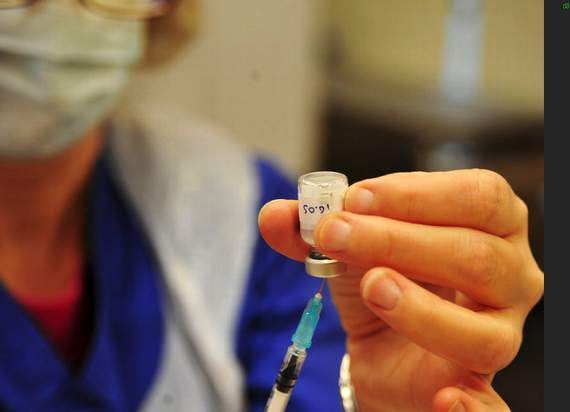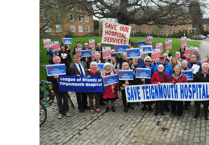A THIRD of all adults across Devon and Cornwall have had their second dose of a coronavirus vaccine, latest NHS figures show
The statistics, which provide the position as of May 2, show that there have been 1,517,943 vaccines delivered in the two counties, with 1,028,348 of them being the first dose.
In Devon, 694,770 people have had their first dose, with 324,040 of them having had a second dose, while in Cornwall, 333,578 people have had their first dose, with 165,555 a second dose.
It means that in Devon, 69.5 per cent of adults have had at least vaccine dose, while nearly a third – 32.4 per cent – have had their second dose,
In Cornwall, 72 per cent of adults have had one dose, with 35.7 per cent having had their second dose as well. These figures will have risen in the most recent days as it shows the position as of Sunday.
Of the adult population, 72 per cent in Cornwall, 76.3 per cent in East Devon, 56.4 per cent in Exeter, 83.1 per cent in the Isles of Scilly, 72.9 per cent in Mid Devon, 73.3 per cent in North Devon, 65.5 per cent in Plymouth, 75.5 per cent in South Hams, 76.3 per cent in Teignbridge, 76 per cent in Torbay, 75 per cent in Torridge, and 77.4 per cent in West Devon, have had one dose. These figures are as of May 2 and so will have risen in recent days.
Of the adult population, 35.7 per cent in Cornwall, 40.6 per cent in East Devon, 27.5 per cent in Exeter, 41.4 per cent in the Isles of Scilly, 32.1 per cent in Mid Devon Devon, 35 per cent in North Devon, 28.6 per cent in Plymouth, 34.1 per cent in South Hams, 32.9 per in Teignbridge, 34.8 per cent in Torbay, 31.9 per cent in Torridge and 43.1 per cent in West Devon, as of May 2, had their second dose.
It comes as Oxford-ONS analysis of more than 370,000 survey participants found infections reduced by 65 per cent after a single dose of the vaccine, and also showed that if you are infected after vaccination, the symptoms and the viral load tend to me much milder.
Meanwhile, a separate study from Public Health England, of 500,000 households in England, estimated that people with the virus who hadn’t been vaccinated infected around 10 per cent of people in their households, but that figure dropped to around 6 percent where the original case had been vaccinated.
Steve Brown, Director of Public Health Devon, said: ‘We are learning more and more about the vaccines and their impact not just in protecting the individuals who have had their jab, but also on the impact it has on the transmission of the virus.
‘I know that younger people may think that they’re less likely to be seriously ill from the virus because of their age and general good health, compared say to older and more vulnerable people. And that may be true. But don’t let that persuade you not to have the vaccine.’




